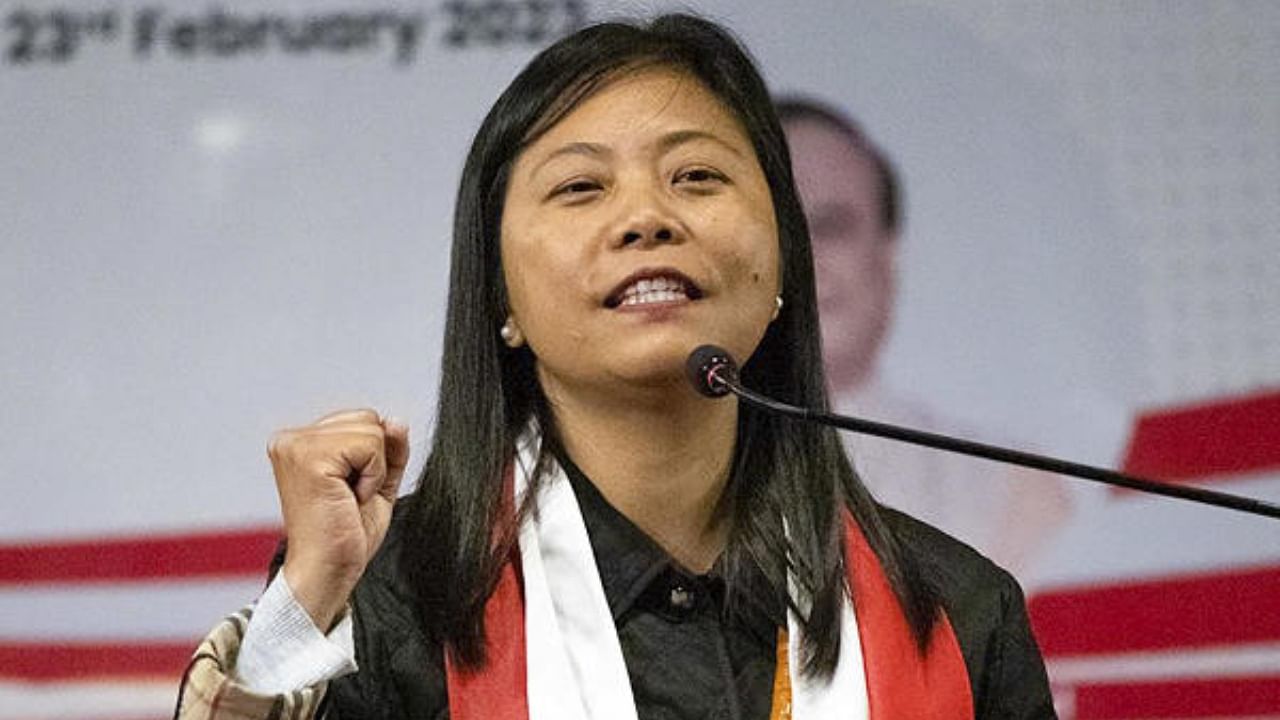
Nagaland drew a lot of praise on March 2, when Hekani Jakhalu and Salhoutuonuo Kruse were elected as the state's first women MLAs.
Five days later, Kruse was made the tribal state's first woman minister. She took charge as the minister for women's resource development and horticulture in the NDPP-BJP coalition government, which also took oath for the second straight term.
But the state government's announcement on March 9 for holding elections to the Urban Local Bodies (ULB) on May 16 with 33 per cent reservation for women reignited anger among several tribal organizations, something which has kept the elections in the Northeastern state stalled for the past 19 years. The notification for holding the elections for three municipal councils and 36 town councils was issued as per the 74th Amendment of the Constitution and an order of the Supreme Court for Nagaland pronounced in July this year.
However, the Tribal Hohos, the apex bodies of several Naga tribes, on March 27 adopted a resolution at the state capital Kohima that the Nagaland Municipal Act 2001 should be "reviewed and re-written" as it infringes Article 371-A, a special provision for Nagaland that bars implementation of an act of the Parliament without a resolution for the same by the State Assembly.
"Reservation of the office of Chairperson for women is a deprivation provision to the rightful candidate and is therefore unacceptable," said the resolution. The tribal bodies also suggested that the 33 per cent reservation for women should not be more than two tenures.
As the tribal Hohos threatened to boycott the ULB elections without repealing or reviewing the Municipal Act, Nagaland Assembly on Tuesday adopted a resolution for the same in order to address the concerns once and for all. An official statement said the decision was taken unanimously keeping in mind the law and order problems Nagaland faced in the past while trying to hold the ULB elections with 33 per cent reservation for women.
A similar move in 2016 had resulted in large-scale violence in Nagaland as the tribal bodies were opposed to the same without repealing the Nagaland Municipal Act. And the resolution taken by the Assembly on March 28 once again carries the possibility of further stalling the ULB elections. Elections for ULB in Nagaland were conducted in 2004 but without reservations for women. The Nagaland Municipal Act 2001 was amended in 2006 to provide for 33 per cent reservation for women. It also allowed the collection of land and building taxes by the ULB but the tribal bodies are opposed to the same saying that the provision goes against their Customary laws.
Women organisations in the state, however, have several times issued an appeal saying that the special provisions under Article 371 (A) should not be applied for denying reservation to women. They believe that reservation would encourage more women to contest elections as low participation of women in elections has remained a concern in the tribal state.